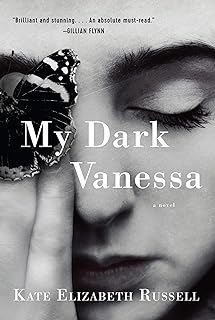4 Stars
I listened to this
book on morning walks for the last couple of weeks. Its subject matter didn’t make it the
pleasantest of companions, but I could not but be impressed by its realistic exploration
of the aftermath of abuse.
The narrator is Vanessa Wye. When she was 15 she had a sexual relationship with her 42-year-old English teacher, Jacob Strane, at a private boarding school in Maine. The novel begins when she is 32 and Strane is accused of sexual abuse by another former student who wants Vanessa to come forward and speak openly about what happened to her. Vanessa is adamant that she was not abused and that her relationship with Strane was a romance.
The novel moves back and forth between 2017 and when Vanessa was in boarding school and in university. Despite her unwillingness to accept that she is a victim, it is clear that she has been harmed. Her academic promise has been unfulfilled as she works as a hotel concierge. She relies on alcohol and drugs to help her through her days. She is still fixated on Strane; when she doesn’t see him, she has casual encounters with older men.
Strane is a textbook predator. He recognizes a lonely girl craving attention and takes advantage of her vulnerability. He flatters her with compliments so she feels special and treasured. Slowly he grooms her. He convinces her that she is beguiling so she feels powerful. He also manipulates her to see herself as dark and bad and so willing to engage in a dark relationship which society would label as bad. Strane even uses Vanessa’s love of books; he leads her to interpret Lolita as a story of forbidden love. He is so adept at manipulation that, though Vanessa feels more physical repulsion than attraction, she finds his attentions irresistible.
Vanessa is not always a likeable character, but the reader has to remind him/herself that, though she refuses to see herself as one, she is a classic victim. She continues to protect her abuser, defending and justifying his treatment of her. There is no sudden epiphany for Vanessa but that just emphasizes the extent of the psychological manipulation to which she has been subjected. She needs to see herself as fully complicit or she will have to admit she was not unique and powerful as Strane led her to believe. She has written a fiction to explain her life to herself and if she rejects that fiction, she will be totally lost.
This is an uncomfortable, unsettling book with some very disturbing scenes. Nonetheless, it is worth reading because it illustrates the impact of abuse and why women often refuse to view themselves as victims of abuse.

No comments:
Post a Comment